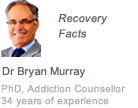Amphetamine Addiction
Amphetamine addiction is a scourge in our young people today. Easy to get, easy to use and abuse, and so easy to rely upon to get through all night parties, all night revision for exams, feeling a bit tired and low, needing just a little boost to get through the day… Amphetamine addiction is insidious and very difficult to stop. Amphetamine is a powerful stimulant, and a sadly popular recreational drug of abuse. Like all other drugs, amphetamine was formulated for particular altruistic reasons, and is used medically.
About amphetamine
Amphetamine was found in the 1930’s and was initially used as a nasal inhaler for treating hay fever and flu. With time it has become a psycho-stimulant drug, used to produce wakefulness and decrease fatigue and appetite. The name amphetamine comes from the organic chemical compound alpha-methylphenethylamine. Amphetamine acts in a way which is similar to our naturally produced adrenaline, which is also known as the fight or flight hormone. The effects of adrenaline are short though, while amphetamine lasts much longer and has other, detrimental effects as well.
Amphetamine is produced by the pharmaceutical industry for medical use; available under many brand names, (Dexedrine, Procentra and Benzedrine for example) different formulations exist for treatment of varying conditions. Amphetamine is available in capsules, powder, tablets and liquid suspension. Amphetamine addicts can administer the drug orally, nasally or by injection. The method of ingestion does not change the addiction, so amphetamine addiction severity cannot be gauged merely by the addicts’ choice of use
Facts about amphetamine addiction
Amphetamine addiction affects all of us in one way or another. An estimate of $484 billion is spent on this addictive medicine every year, while addiction is believed to be a major contributing factor to crime and fatal road accidents. Amphetamine users are often sufferers of stress and people who suffered abuse as children.
Amphetamines act by exciting the nervous system, making the individual feel generally well and at peace. This calming effect may last for varying amount of time, depending on its mode of administration. Tablets work slower, and have a prolonged effect. When inhaled nasally it works almost immediately but the effects are less long lasting than tablets, and injections work immediately and for longer periods.
As time goes on, amphetamine addiction will get stronger. The addict will find the effects lasting for shorter periods as the tolerance factor rises and the addict’s body needs more frequent, higher doses. The physical cravings and psychological stress can make an amphetamine addict extremely irritable and aggressive when they need a dose. Ultimately, the addict will consume larger quantities of the drug, to remain stable. The cycle continues though and tolerance gets higher still, the addict needs more and more amphetamine until an accidental overdose. Although amphetamine overdose is not necessarily fatal it can lead to:
- Psychosis
- Severe hypertension
- Dysfunction of the respiratory system, the core body temperature and the brain.
Amphetamine overdose will certainly take the addict into an emergency department in hospital where, if they are lucky, the addiction will be recognized and the addict will be given help.
The characteristics of amphetamine addiction
When addicts begin to find it difficult to cope with the negative effects of amphetamine addiction they may:
- Adopt violent and self destructive behavior
- Lose their appetite leading to sudden and drastic weight loss
- Pant or breathe shallowly and fast
- Be hyper active for extended periods of time
- Metabolic activity also rises causing hyperthermia
- Be in a constant state of euphoric behavior.
You may notice paranoia, isolation, and mood swings from extreme elation to depression in an amphetamine addict. There may be strange hallucinations, sleeplessness and sleep disorders. They will display disrespect for the consequences of harmful behavior.
As the need for more and more amphetamine requires more money addicts are likely to get involved in illegal and criminal endeavors. Amphetamine addicts often adopt irresponsible and abusive behavior, making them very difficult to be around. They suffer from sudden depression and self-pity after the intense highs of the addiction. Constant switching of eating patterns from an insatiable and voracious appetite on one day to starvation the next cause lethargy, headaches, fatigue, stomach cramps, tremors and anxiety attacks in the individual.
Amphetamine addicts suffer from damage to the liver, lungs and heart. They might develop infections such as tetanus, hepatitis and HIV from constant use, sharing and reuse of syringes. Brain damage from amphetamine addiction and abuse may lead ultimately to Schizophrenia.
Candidates for amphetamine addiction
A study on amphetamine addiction has shown that children between 10 to 15 years and adults from age of 25 onwards are potential sufferers of amphetamine addiction. Once they have been prescribed, there is almost 90% inclination towards its addiction.
Recovering from amphetamine addiction
Recognition is the first step to recovering from amphetamine addiction, and because of the physical damage, physical and emotional dependence and harsh withdrawal symptoms, recovery from amphetamine addiction needs long term continuing treatment. Accepting the fact of addiction, detox and rehab in a suitable residential center, followed by a network of support in the community are the classic, effective methods of recovery treatment for amphetamine addiction – and they work.












